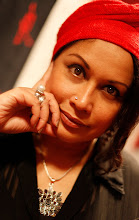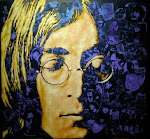 My cousin Royston had armies of tiny green and brown plastic soldiers. I used to sit quietly for great lengths of time, watching him line them up – a bar of chocolate lying on the floor beside him. Carefully and patiently he would arrange them on two opposing sides before he would allow his imagination to enact a dramatic battle with all the folly and foley effects of a combat zone. It was my first introduction to war ‘movies’. In the background, the sounds of the Beatles singing happy love songs and my grandmother grinding ‘rempah’ (curry paste) reassured us of our safe peaceful reality, as it floated up the stairs of her home to mingle in with Roy’s commentary of death and destruction. He was my favourite cousin, and his boyhood battles drew me to appreciate ‘boy movies’ and is perhaps the main reason why I have watched just about every war movie ever made.
My cousin Royston had armies of tiny green and brown plastic soldiers. I used to sit quietly for great lengths of time, watching him line them up – a bar of chocolate lying on the floor beside him. Carefully and patiently he would arrange them on two opposing sides before he would allow his imagination to enact a dramatic battle with all the folly and foley effects of a combat zone. It was my first introduction to war ‘movies’. In the background, the sounds of the Beatles singing happy love songs and my grandmother grinding ‘rempah’ (curry paste) reassured us of our safe peaceful reality, as it floated up the stairs of her home to mingle in with Roy’s commentary of death and destruction. He was my favourite cousin, and his boyhood battles drew me to appreciate ‘boy movies’ and is perhaps the main reason why I have watched just about every war movie ever made.We are very lucky, we have lived all our lives in peace – we have never had to run or hide in fear upon hearing the shrill wailing of siren warnings or the hissing sound of missiles approaching. We have never known dusty obliterated surroundings, the empty pain of continued hunger, or the heart wrenching anguish of having loved ones ripped away from us - the last terrifying image of them screaming as they are herded away in trucks - disappearing forever.
What we knew we heard from our parents and older relatives who often spoke of the atrocities of war as they had lived through the Japanese Occupation in Singapore and Malaysia. Pregnant women with their precious bellies slashed open to display the innocent contents of their wombs. Heads of neighbours chopped off and plunged onto stakes, erected like lamp posts; dead lifeless eyes silently observing the continuing nightmare, to a cacophony of buzzing flies. Sharpened pencils placed into ears and forcibly rammed in to burst ear drums that dared to listen to the radio. These stories horrified me as a child and I remember going to bed every night, praying that war would never again come to Singapore and Malaysia. My little world only stretched as
 far as the small peninsula in the 60’s. But I gradually became aware of the wars in Indochina. Saigon, Kampuchea, Laos … even though the places were still so far removed from my reality. American soldiers, Communists, napalm, killing fields – random words I did not really understand but from hearing on the news every single day absorbed in my consciousness. And a blurry memory of John Lennon and Yoko Ono in their ‘bed-in’ in some public place pleading the world to Give Peace A Chance. And everyday ‘A Whiter Shade of Pale’ by Procol Harum playing on the radio.
far as the small peninsula in the 60’s. But I gradually became aware of the wars in Indochina. Saigon, Kampuchea, Laos … even though the places were still so far removed from my reality. American soldiers, Communists, napalm, killing fields – random words I did not really understand but from hearing on the news every single day absorbed in my consciousness. And a blurry memory of John Lennon and Yoko Ono in their ‘bed-in’ in some public place pleading the world to Give Peace A Chance. And everyday ‘A Whiter Shade of Pale’ by Procol Harum playing on the radio.
In June 1972 the photo of 9 year old Phan Thi Kim Phuc screaming, burnt and naked - running out of her village that had been bombed with napalm was on the front page of the newspaper. It was 3 weeks before my 10th birthday. I remember staring utterly nauseous with my heart racing while I looked with horror at her picture, and I wept. Here was a little girl; we could have been friends, she and I – except I was born in a place far away from the Communists and the American soldiers, far away from all the fear and suffering that had engulfed Indochina for so long. In my world, while John Lennon sang 'Imagine' at least 3 times a day on the radio, mum was making beautiful paper hats from pink, orange and mustard coloured crepe for my birthday party. Little did I realise back then but that simple yet powerful song, would become my favourite of all time.
Shortly after my party, I realised I did not want to play any longer with the Barbie, Ken, Skipper and Midge dolls that I had inherited from the sister of mum’s best friend the previous year. I had been so excited about having my own Barbie doll collection I hardly slept the night before we went to pick them up, but now they just looked frivolous and childish. I packed them and all their clothes into the biscuit tins that I used to store my toys in, and kept them away forever. I instead began to obsess about the wars abroad and finding out more about the wars the generations before me had lived through. Always at the back of my mind … Phan Thi Kim Phuc screaming, burnt and naked … running.
The whole world knows the stories that followed of the thousands upon thousands of refugees that began to arrive in crude boats onto shores all over the world. The horrific tales of pirates, rape, family members dying of thirst and babies being born on the high seas during the long and terrifying journey. Of being shot at and being refused entry at places like Singapore, of being pushed away again to face the unknown. The anguished plight of desperation of our unwanted fellow human beings that were not given an ounce of compassion head-lined the news almost everyday.
By this time my grandmother had passed away, I was nearing the end of high-school and the 70’s were drawing to a close. The world had come to believe Christopher Reeve could fly and The Police had had huge hits with 'Roxane' and 'Message in a Bottle'. 1980 began with a bang,
 only to end with the cold-blooded shooting and murder of John Lennon. A man of peace whose death left a twinge in my heart that has never fully gone away.
only to end with the cold-blooded shooting and murder of John Lennon. A man of peace whose death left a twinge in my heart that has never fully gone away.2008 - I am now nearly 46 years old and terrorism is no longer a word I associate with Northern Ireland. Wars continue to be waged, the world continues to bleed, people continue to be refugees and peace sometimes seems so very far away. Technology brings real wars onto our TV sets as they happen so we can participate by watching the destruction from the comfort of our sofas, while we continue to take our safe and privileged lives for granted, complaining about an infinite number of little things. The war is not over, John. I sometimes wonder what you would think if you were still alive - what strange yet effective devices would you and Yoko have conjured to raise our awareness today?
This year, on 20 September Alan and I would like to invite our friends to Give Peace A Chance. A party to celebrate the UN International Day of Peace will be held at our home. We are encouraging our guests to dress up in 70’s outfits, we want to play, sing and dance to songs from that era. We want to apologise, share food and stories, and we want to spread the word that we all can do our bit for Peace One Day.
Please watch:





































